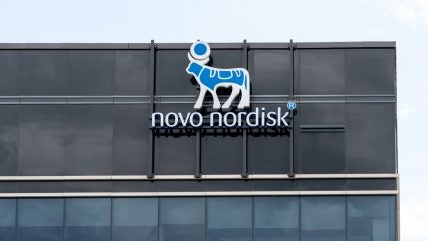Novo Nordisk signs $1.46bn deal to develop molecular glue therapies
27 Feb 2024
License out/inPhase 2PROTACsAcquisitionPhase 1

Preview
Source: Pharmaceutical Technology
The Novo Nordisk and Neomorph deal is worth approximately $1.46bn in upfront and milestone-based payments across multiple targets. Image Credit: JHVEPhoto / Shutterstock.
Novo Nordisk has signed a collaboration and licensing agreement with US-based biotech Neomorph to discover and develop multiple molecular glue degraders for cardiometabolic disorders and rare diseases.
The deal is worth approximately $1.46bn in upfront and milestone-based payments and covers multiple targets.
Targeted protein degraders, especially molecular glue, have been a growing area of interest in recent years. Most of these therapies are developed as treatments for cancers. According to GlobalData’s Pharma Intelligence drug database, more than 200 therapies that are tagged under molecular glue drugs are currently in development.

Preview
Source: Pharmaceutical Technology
Amneal signs agreement with Zambon for Parkinson’s disease therapy

Preview
Source: Pharmaceutical Technology
GlobalData is the parent company of Pharmaceutical Technology.
Several top pharmaceutical companies have invested in developing protein degrader therapies in recent years. In December 2023, MSD signed a collaboration and licensing agreement potentially worth $2.5bn with C4 Therapeutics to develop degrader-antibody conjugates (DACs), designed to selectively target and neutralise disease-causing proteins in cancer cells.
In September 2023, Seagen partnered with Nurix Therapeutics to develop DACs for cancer treatment. Seagen and its antibody-drug conjugates (ADCs) technology was then acquired by Pfizer to bolster its oncology portfolio.
Apart from oncology, protein degraders are also being developed in other indications. Sanofi and Kymera Therapeutics’ protein degrader is currently in Phase II trials as a treatment of atopic dermatitis and hidradenitis suppurativa. Both trials are expected to be completed in Q1 2025. In 2022, AbbVie partnered with Plexium to develop targeted protein degrader therapies for neurological conditions.
For more details,please visit the original website
The content of the article does not represent any opinions of Synapse and its affiliated companies. If there is any copyright infringement or error, please contact us, and we will deal with it within 24 hours.
Organizations
Indications
Targets
-Drugs
-Hot reports
Get started for free today!
Accelerate Strategic R&D decision making with Synapse, PatSnap’s AI-powered Connected Innovation Intelligence Platform Built for Life Sciences Professionals.
Start your data trial now!
Synapse data is also accessible to external entities via APIs or data packages. Leverages most recent intelligence information, enabling fullest potential.





